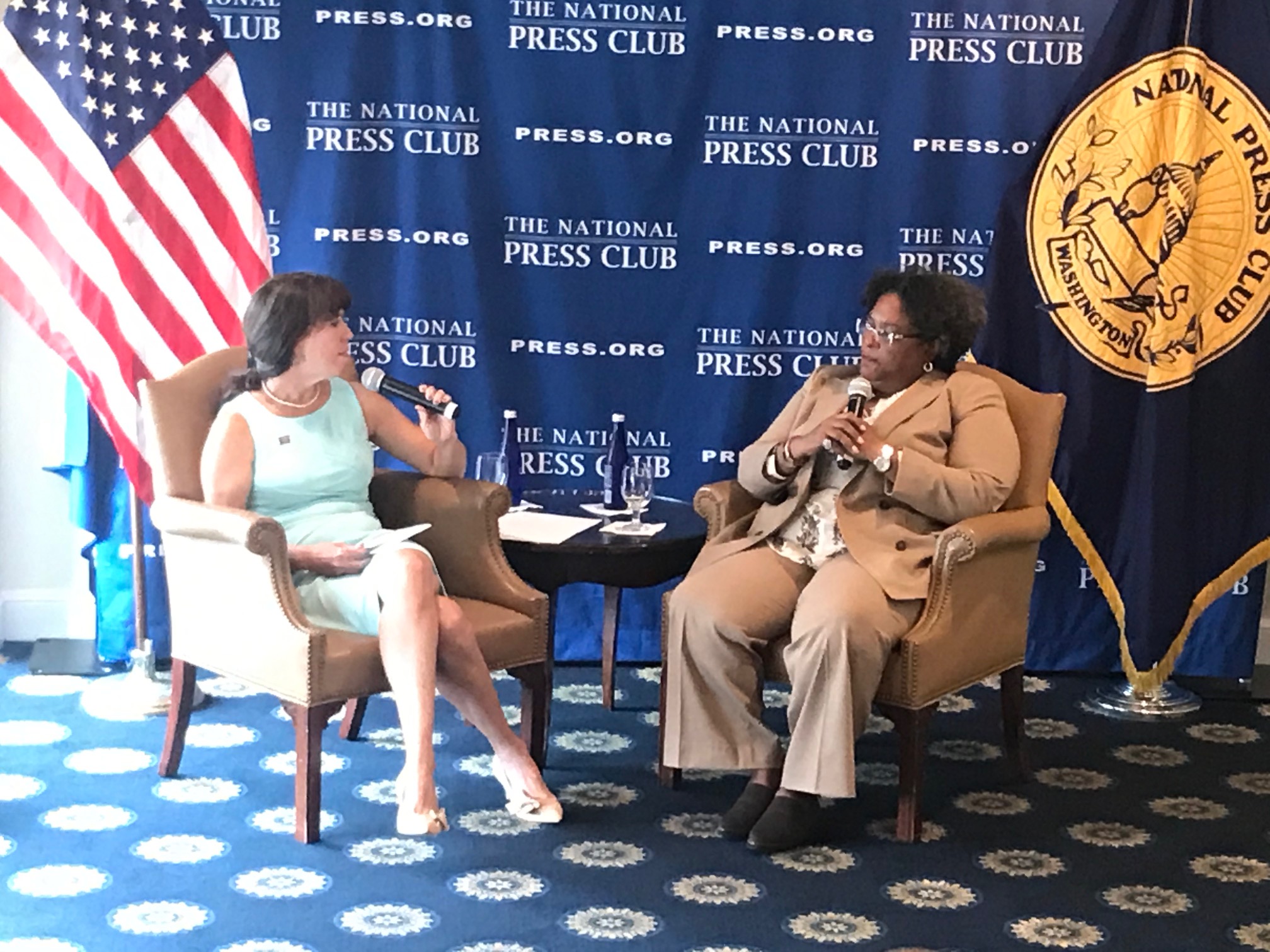Barbados prime minister presses action on climate change
 Barbados Prime Minister Mia Mottley was interviewed by National Press Club president Alison Kodjak Fitzgerald and described what Mottley called the devastating impact of climate change: how the forecast 2.7 degree Fahrenheit rise in global temperatures in the near future will more deeply affect the island nation of Barbados and the 43 other small islands that make up the Alliance of Small Island States (AOSIS).
Barbados Prime Minister Mia Mottley was interviewed by National Press Club president Alison Kodjak Fitzgerald and described what Mottley called the devastating impact of climate change: how the forecast 2.7 degree Fahrenheit rise in global temperatures in the near future will more deeply affect the island nation of Barbados and the 43 other small islands that make up the Alliance of Small Island States (AOSIS).
She described the ruinous effects of recent hurricanes, the tens of thousands who had to relocate and the impact on those who did not have the “luxury to relocate.” The prime minister discussed the lingering health effects when the existing structures cannot endure as well as the impact on water quality, the air, and the food we eat. The United States has also been impacted.
On Sept. 23, the prime minister had cautioned world leaders at the United Nations Climate Action Summit in New York about the destabilizing domino-effect she believes these rising temperatures will have around the globe if greater measures are not taken to reduce the effects of climate change. “Make no mistake, there will be mass migration by climate refugees that will destabilize the countries of the world that are not on the front line of this climate crisis.”
To those attending at the NPC program, she commented that “some of you may find this a provocative statement but we think it is a factual statement” that they had discussed climate justice 10 or 15 years ago and that the commonwealth had developed a vulnerability index as far back as 1989, knowing that they had to develop systems and structures to protect their infrastructure, ground water and “build resilience” to change.
Her family members in Australia, the United Kingdom and Canada are reporting climate change impact and the hottest days in European recorded history have been reported this year.
The prime minister responded to concerns expressed about the devastation of change on workers who will lose their jobs in key industries, such as coal. Those in leadership are responsible to help them transition to jobs that are created to support to new ways of producing energy, renewable energy jobs, “we have to find new ways of adjusting, the world is not static.” She shared to story of a local ice company that was forced to adapt 100 years ago when electricity put them out of business. They are now one of the largest manufacturers of flight kitchens in the Caribbean and beyond.
She cautiously described the mood at the United Nations Summit. Norway, France, Qatar and India, are investing in special programs. Others have committed. They are waiting for the United States to step back to the table and countries like Brazil to embrace science as it is now. Mottley pondered, “How do you see these things and fail to make the necessary decisions and reminded that the first duty of government is to preserve and protect the safety of the people and the state.
Concerned that older leaders cannot envision the impact on lives 40 years from now, she noted, it is the young people who already having a great impact. Strikes were done in 150 countries the Friday before the Summit and young people throughout the world demanded climate justice. Today’s young activists are saying that their future has been “mortgaged" or stolen and that we have to do something now. There is no time for people who refuse to make the critical decisions about sustaining life, “Give a voice to the young people; politicians will listen to the numbers.”
